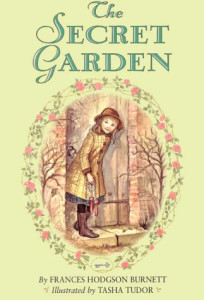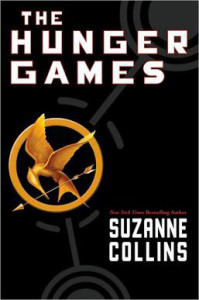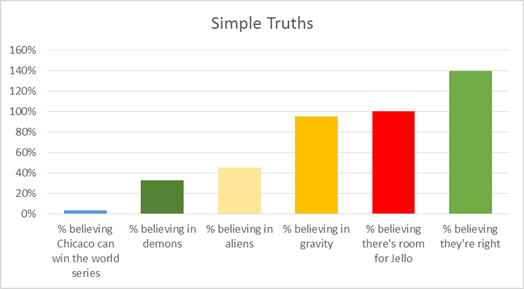 In my early writing I struggled with Point of View. I recently reread one of the first chapters I had written where I switched point of view seven times. I improved to the point where POV wasn’t my main fault, instead it was telling the story rather than showing it.
In my early writing I struggled with Point of View. I recently reread one of the first chapters I had written where I switched point of view seven times. I improved to the point where POV wasn’t my main fault, instead it was telling the story rather than showing it.
I’ve since learned that POV can be an extremely effective tool to help show the story. Allowing our characters to experience and react to the circumstances in which we place them, helps to endear the reader, reinforce the scene, and establish conflict.
Junic sat beside his friend facing the numerous rows of bottles and tins, the best the seven galaxies had to offer. His mouth watered. He hadn’t tasted liquor since the invasion of Gareth, four years earlier.
Hopefully in the few sentences above, the reader gets a glimpse at the premise of the story based on the prompt “two aliens walked into a bar.”
In developing my main character, Junic, I assigned him a foreign sounding name to help with the suggestion that he isn’t from modern day USA. From his point of view we see that he is sitting next to a friend, and there are rows of bottles, perhaps in a cellar, maybe a bar, but then tins doesn’t quite work with that image so it adds to the foreignism of the scene.
Junic obviously knows what’s in the bottles and the scene isn’t foreign to him at all. I can use that to invite the reader to trust me as I create and show them a world.
The term seven galaxies might reinforces the alien setting, while adding an element to the world. I indicate here that there is a social structure, a system of which Junic is a part. I could let him react to that structure at some point, maybe identify his place in the caste system or have him react to authority. I can use adjectives to indicate his mood or elaborate on his thoughts. Such as the “blasted” seven galaxies or magnificent, or heathen, or doomed. Each could indicate more of the world and setting and any would give us further insight into our character.
“His mouth watered.” A human response, if Junic is human or humanlike, I really hadn’t thought that far ahead, however his response is relatable. Often with physical reactions like a tear, a yawn, a scratch of the head, and so on, a memory is provoked. The scene causes Junic’s mouth to water and he thinks of the last time he tasted what was in those bottles.
 In the Secret Garden, by Frances Hodgson Burnett, Mary Lennox (a proper British name) is introduced in a scene given from her point of view.
In the Secret Garden, by Frances Hodgson Burnett, Mary Lennox (a proper British name) is introduced in a scene given from her point of view.
‘“Why did you come?” she said to the strange woman. “I will not let you stay. Send my Ayah to me.”’
From this short dialogue we learn a bit about Mary and her world. Adjectives should be representative of the point of view. The woman was strange to Mary, unknown. She wanted to see her Ayah. At this point I’m not sure if that is a person or a position. Either way, Mary seems to want Ayah, and by her demanding response to this woman gives the sense that Mary is or at least thinks she is in charge.
Later it reads
“There was something mysterious in the air that morning. Nothing was done in its regular order and several of the native servants seemed missing, while those whom Mary saw slunk or hurried about with ashy and scared faces. But no one would tell her anything and her Ayah did not come.”
I get the sense that tragedy has occurred, though I’m not sure yet what it is. By now in the story I can tell that I’m seeing the world from the eyes of young girl, and discovering the tragedy with her. Another adjective, “scared” sticks out to me. Children can perceive fear. She’s observing them, trying to figure out what’s going on by gauging their reactions. I gain a sense that the young girl is spoiled and depends greatly on her Ayah, that I suspect as being some sort of nanny. My opinion of Mary develops and adds to the conflict. Her attitude is reflected in the point of view, in her dialogue and in her actions.
 The following is a piece of dialogue from The Hunger Games by Suzanne Collins:
The following is a piece of dialogue from The Hunger Games by Suzanne Collins:
‘”You look beautiful,” says Prim in a hushed voice.
‘”And nothing like myself,” I say. I hug her, because I know these next few hours will be terrible for her. Her first reaping. She’s about as safe as you can get since she’s only entered once. I wouldn’t let her take out any tesserae. But she’s worried about me. That the unthinkable might happen.’
In just a few sentences I’m introduced to two characters, I gain a sense of their feelings, I am shown a glimpse into their society, and am invited into a world, foreign to me, but known to them.
Being in first person, I’m drawn to the mind and feelings of Katniss the main character. Be careful in first person to not be too revealing and telling.
Through dialogue I gather that Katniss is beautiful, but is out of her element from being prettied up. Maybe she’s a tomboy. I also sense that there is apprehension in the scene. The adjective hushed suggests a somberness to the ambiance. And a hug for comfort suggests something bad is about to happen.
I’m curious about the reaping. I know what it means in english, but have never heard it referred to as a repeated event, so it must be a part of their culture, perhaps a rite of passage. Reading this I’m not sure what tesserae is, but Katniss does. I don’t need to know what it is right this minute. In my earlier writing I would feel the need to explain a new term (tell) rather than let it be discovered as its mentioned in certain contexts and reinforced (show). I assume that the reaping is some custom of their system with negative consequences. Using these terms helps show me Katniss’ world.
Whatever story you’re reading, take note how the author uses point of view to invite you into the world, develop the setting, and endear the reader. And for some practice, try your hand at the prompt, “two aliens walk into a bar.” Feel free to share it with us in the comments.

 The music was a dirge, some long-forgotten Celtic lament full of wailing. It washed over me like surf over a half-buried corpse at low tide. Ira stood behind the bar cleaning the same glass he’d been running a dirty towel over for the past ten years.
The music was a dirge, some long-forgotten Celtic lament full of wailing. It washed over me like surf over a half-buried corpse at low tide. Ira stood behind the bar cleaning the same glass he’d been running a dirty towel over for the past ten years.